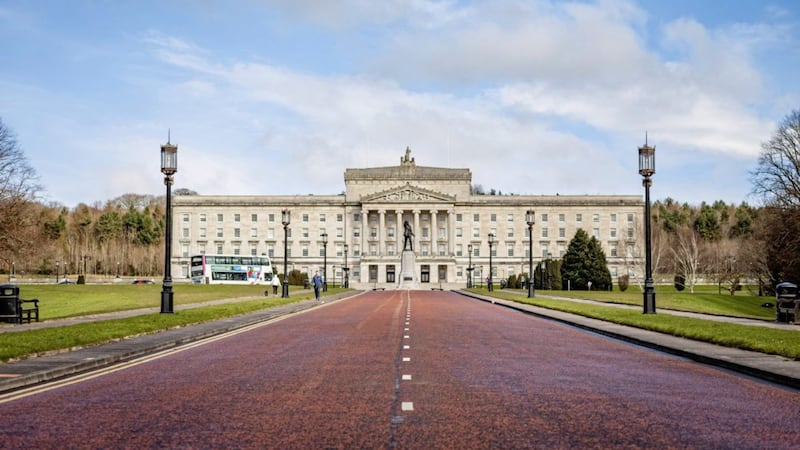Today is the start of October and we are entering the 22nd month without a functioning administration or assembly.
Bizarrely we still have a Speaker of an assembly that doesn’t sit. This probably makes that post the best paid caretaking job in Northern Ireland - if not the UK.
My fellow Irish News columnist and comedian, Jake O’Kane, regularly reminds us by social media that with each day that passes each MLA costs £131 to the public purse. And with 90 MLAs that’s equal to £11,790 per day. To put in context for the 22 months that MLAs haven’t been fulfilling their mandate, the cost to the public has been a staggering £11m.
To keep acute services at Daisy Hill Hospital in Newry an additional £1m was given by central government - yet this is to service an area with a population of 171,600, a miserly £5.82 per person. The total investment package to health services throughout Northern Ireland announced in June was £9.5m, £1.5m less than the money given to keep a non-functioning assembly and absentee executive. It doesn’t bring a smile to my face.
However, let’s be fair, the impasse is not the fault of all the political parties. Blame lies firmly at the doors of both Sinn Féin and the DUP. Naturally both parties blame each other for the breakdown.
Yet this crisis or rather paralysis cannot be allowed to continue. It is a complete abnegation of responsibility to allow Northern Ireland to drift into some kind of political abyss and continue to claim full salaries. If the secretary of state can’t or won’t act, then the political parties could and should take action themselves and invite their individual MLAs to donate the proportion of the proposed reduction of salary in the Reaney report to local charities or local community groups of their choice. That would be an act of leadership and self-discipline that would go beyond woolly words of regret and sympathy to the public.
For Sinn Féin that means not siphoning off part of their MLAs salaries to party coffers but to public organisations working in local communities.
Needless to say, the Speaker's salary should be cut to that of an MLA until the role has a full purpose. Tours of Stormont can be left to the staff.
As someone who interacts with MLAs across the political spectrum much of the work they do is representational and it’s not as if they are sitting at home watching the Jeremy Vine show. Though there may be a few notable exceptions to that statement as some of the 90 MLAs seem to be operating in such a low key way that they are like undercover Christians in Yemen.
Clearly many MLAs are frustrated that the public doesn’t see much of their work and that some are reduced to commentary roles in the media.
An unintended consequence of not having an assembly is the lack of contact our divided politicians have with each other. Proximity to each other at Stormont actually developed trust and created more understanding between various political representatives that transcended party loyalties when working on areas of mutual interest. Fear and mistrust abated, though it must be said for some that was only on the surface. Advisers and spads had to develop working relationships with their counterparts too. All of these eased tensions - when it worked.
It is for this reason the assembly needs a reboot. Trust is clearly gone; leadership teams have changed, and relationships are at an all-time low. The St Andrews Agreement bastardised the Good Friday Agreement and this has led directly to the kind of entrenchment we are now witnessing. The principles of the Good Friday Agreement were sound, its scaffolding was to quote Mark Durkan “ugly”.
A reboot is necessary if we are not to enter a permanent state of political stagnation. In the lead up to devolution we had the shared space of the Northern Ireland Forum and twice prior to devolution and its restoration we had the ‘shadow' assembly and ‘transitional’ assembly. Something similar is now needed. Shared space whereby political parties and more importantly their newer members can learn how to engage and discuss. Space whereby personal contacts can be re-established and the seeds of trust resown.
Most MLAs want to get back to work, their problem is how? All the parties but particularly the DUP and Sinn Féin need to repay the trust of an increasingly unenthusiastic electorate. Soon non-voters will outnumber voters and that type of disengagement serves no purpose at all.









